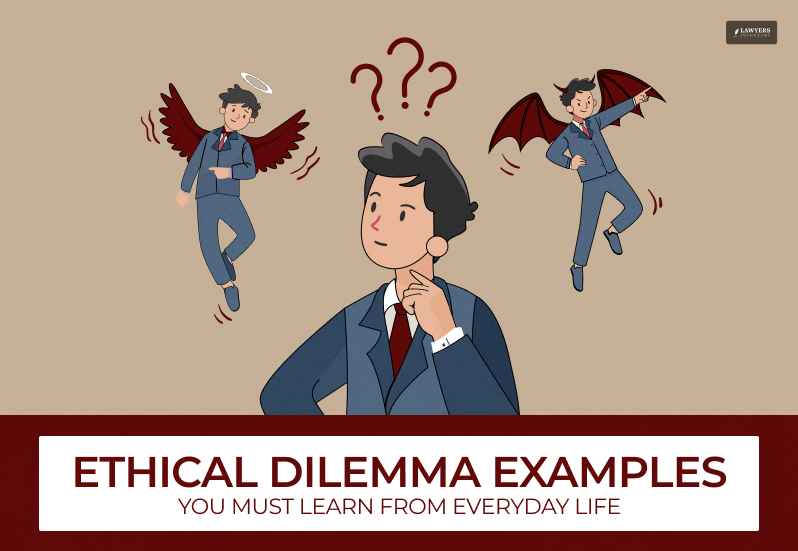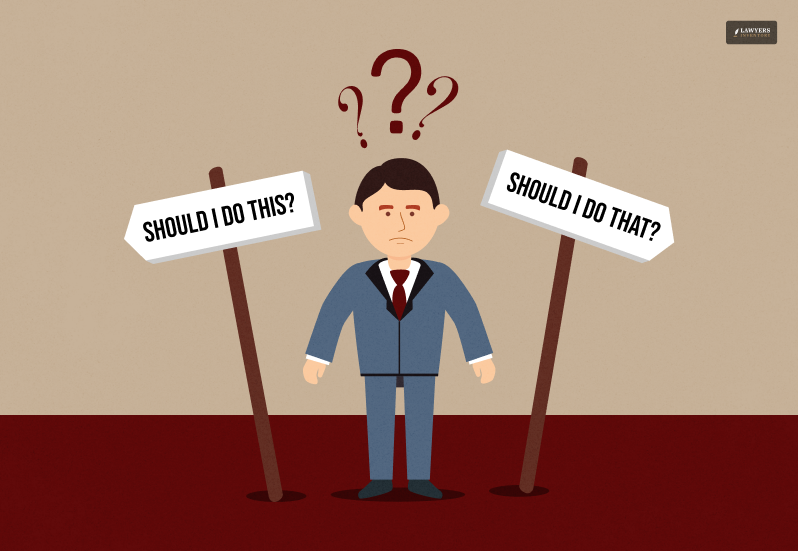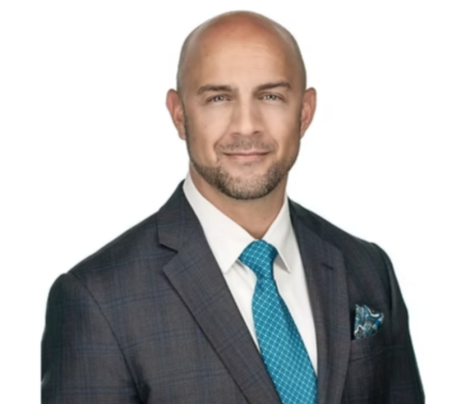
Think about a hypothetical situation. You’re walking down the street and stumble upon a wallet overflowing with cash. What do you do? Keep it or return it to its rightful owner? This is one of the classic ethical dilemma examples, where you have to choose between two or more conflicting moral principles.
Ethical dilemmas aren’t just confined to hypothetical scenarios; they arise in our everyday lives, both big and small.
From deciding whether to lie to protect a friend to grappling with workplace conflicts of interest, these dilemmas can profoundly impact our relationships, careers, and even our personal well-being.
In this article, I will discuss people’s most common ethical dilemmas and the importance of navigating them with integrity.
Therefore, by understanding these dilemmas and learning from the experiences of others, we can develop the critical thinking and moral compass needed to make sound decisions in challenging situations.
Understanding Ethical Dilemmas
Have you ever faced deciding between two or more morally dubious options? That presents an ethical dilemma. This situation has no simple right or wrong response, and your decisions could have far-reaching effects.
Consider it this way: A wallet is left on the ground as you stroll down the street. There’s some identification and a large amount of cash inside.
Do you return the wallet to its owner or retain it? On the one hand, you could use the money. But since it isn’t yours, returning it is the right thing to do. This is a simple example of an ethical dilemma.
Ethical issues might arise in every aspect of our lives, from interpersonal relationships to work environments. These could be as minor as determining whether to tell a friend their outfit is awful or as significant as revealing corporate malfeasance.
The difficulty in solving ethical problems stems from the fact that moral standards often contradict one another.
For instance, you could have to choose between the well-being of the group and yourself or between short-term benefits and long-term consequences.
Ethical Dilemma Examples: When in Personal Relationships
Your best friend confides in you a secret that could harm someone. They beg you to keep it a secret, promising you’ll never regret it. What do you do? This classic ethical dilemma pits loyalty to a friend against your moral obligation to protect others.
While specific statistics on the frequency of such dilemmas in personal relationships can be difficult to find, it’s safe to say that they occur quite often.
People frequently find themselves caught between doing the right thing ethically and wanting to have close ties.
Research indicates that people value loyalty over truthfulness in situations involving close friends or family members. This dilemma involves several intricate ethical considerations.
First, there is the loyalty principle. Betraying trust can have major implications as friendships are based on mutual trust and support. A loss of trust can cause irreversible relational harm and feelings of hatred and betrayal.
Furthermore, as it shows a degree of familiarity and confidence, keeping a secret can deepen the friendship between people.
On the other hand, there’s the principle of honesty and integrity. Protecting others from harm is a fundamental moral value; sometimes, that requires telling the truth, even when it’s difficult.
Keeping a secret that could harm someone else can be seen as a form of enabling, and it can lead to feelings of guilt and shame. Moreover, failing to report a crime or a threat of violence can have legal consequences.
Legal Implications
In some cases, keeping a secret that could harm others could have legal consequences. For example, if your friend’s secret involves a crime, you could be liable for aiding and abetting if you fail to report it to the authorities.
Additionally, if your friend’s secret involves a threat of violence, you may have a legal duty to warn the potential victim. Failure to do so could result in civil or criminal liability.
Ultimately, deciding whether to reveal a friend’s secret is a personal one that must be made carefully. It is important to weigh both actions’ potential consequences and consider the ethical principles at stake.
Ethical Dilemma Examples: A Conflict of Interest at Work

Conflicts of interest are a common ethical dilemma in professional settings. They occur when an individual’s personal interests or relationships interfere with their professional duties. For example, a lawyer representing a client who is a competitor to their spouse’s company faces a conflict of interest.
Research suggests that conflicts of interest are prevalent in various professions, including law, medicine, finance, and government.
A study by the Association of Certified Fraud Examiners found that conflicts of interest contributed to nearly 20% of occupational fraud cases.
The ethical tensions involved in conflicts of interest can be complex. On the one hand, individuals have a right to pursue their interests and to engage in personal relationships.
However, when these interests or relationships interfere with their professional duties, it can raise questions about their impartiality and objectivity.
Conflicts of interest can also create a perception of impropriety, even if there is no evidence of wrongdoing. This can damage an individual’s reputation and erode public trust in the profession. Additionally, conflicts of interest can lead to legal consequences, including civil liability and criminal prosecution.
Legal Implications
To address the issue of conflicts of interest, many professions have developed codes of ethics that outline the standards of conduct expected of their members. These codes often require individuals to disclose potential conflicts of interest and take steps to avoid or mitigate them.
In addition to professional codes of ethics, several laws and regulations govern conflicts of interest in various industries.
For example, insider trading laws prohibit individuals from using non-public information to profit from purchasing or selling securities.
Corporate governance regulations require companies to establish policies and procedures to prevent and manage conflicts of interest among their employees and directors.
Ultimately, the best way to avoid conflicts of interest is to be proactive and identify and address potential issues. This may involve disclosing conflicts of interest, seeking guidance from a supervisor or ethics committee, or recusing oneself from a matter.
Ethical Dilemma Examples: A Political Leader Facing a Moral Dilemma
Political leaders often face complex ethical dilemmas that can have far-reaching consequences. For example, a politician may be faced with whether to support a controversial policy that is popular with their constituents but goes against their personal beliefs.
Case studies of high-profile ethical scandals in public office are abundant.
For example, there have been subsequent attempts to cover up the Democratic National Committee headquarters break-in, known as the Watergate scandal. President Richard Nixon’s administration got involved in the break-in and, thus, tried to cover up!
More recently, the impeachment of President Donald Trump involved accusations of abuse of power and obstruction of Congress.
The ethical principles at stake in political dilemmas are often complex and multifaceted. Public trust is a fundamental value in democratic societies, and political leaders must act in the best interests of the people they serve. This requires them to be honest, transparent, and accountable for their actions.
Accountability is another important ethical principle. Political leaders are expected to be held accountable for their actions to their constituents and the law. This means they must be willing to accept the consequences of their mistakes and be subject to scrutiny and oversight.
Transparency is also a key ethical principle in public life. Political leaders must be open and honest with the public about their decisions and actions. This includes providing access to information, responding to inquiries, and avoiding conflicts of interest.
Legal Implications
Violating ethical standards in public service can have serious legal consequences. For example, public officials can be impeached or removed from office for misconduct. They can also be subject to criminal prosecution for bribery, corruption, and abuse of power.
In addition to legal consequences, violating ethical standards can have political consequences. Political leaders who lose the public’s trust may find it difficult to be reelected. They may also face challenges in achieving their policy goals and building consensus among their colleagues.
Ethical Dilemma Examples in Technology: Privacy Concerns in the Digital Age
The rapid advancement of technology has created a new set of ethical dilemmas related to privacy.
As we increasingly rely on technology in our daily lives, we also generate vast amounts of personal data that can be collected, stored, and used in ways that may violate our privacy.
Statistics on data breaches, surveillance, and online privacy violations are alarming. According to a report by IBM, the average data breach cost in 2023 was $4.35 million.
Meanwhile, governments and corporations around the world are increasingly using surveillance technologies to monitor the activities of individuals online and offline.
The ethical implications of technological advancements on individual privacy and societal well-being are significant.
On one hand, technology can provide many benefits, such as improved communication, education, and healthcare. However, it can also pose risks to our privacy and security.
For example, the widespread use of social media platforms has led to concerns about collecting and using personal data.
Social media companies often collect and track our online activities and may share this data with third parties. This can lead to targeted advertising but also expose us to identity theft, phishing scams, and other forms of online harassment.
Surveillance technologies like facial recognition and drones are also raising privacy concerns.
These technologies can track our movements, monitor our behavior, and predict future actions. This can churn out free speech and expression, eroding our sense of privacy and security.
Legal Implications
Governments worldwide have enacted laws and regulations to protect individuals’ data and address privacy issues in the digital age.
The General Data Protection Regulation (GDPR) is a landmark piece of European Union legislation that gives individuals greater control over their data.
The California Consumer Privacy Act (CCPA) is a similar law that applies to businesses operating in California.
Despite these laws and regulations, protecting privacy in the digital age remains challenging. New technologies are constantly emerging, and it can be difficult for policymakers to keep up with the pace of change.
As individuals, we can also take steps to protect our privacy, such as using strong passwords, being mindful of what information we share online, and limiting our exposure to surveillance technologies.
Dealing With Ethical Dilemma
As you can see, ethical dilemmas can be complex and multifaceted. There is often no easy solution, and our choices can have far-reaching consequences.
It’s important to be aware of ethical dilemmas and develop the critical thinking skills to navigate them effectively.
Read More…
- General Strategies For The Defense Of White-Collar Crimes
- Justice in the Balance: The Role of Criminal Defense Attorneys
- A Guide On How To Choose The Right Criminal Defense Lawyer











0 Reply
No comments yet.